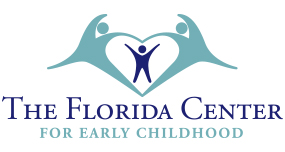Strategies for Fostering Grateful Children
by Guest Columnist Sandy Chase
 Gifts abound during the holiday season. But are our children grateful? More important, what strategies can parents and/or teachers use to help children develop an “attitude of gratitude” all year long?
Gifts abound during the holiday season. But are our children grateful? More important, what strategies can parents and/or teachers use to help children develop an “attitude of gratitude” all year long?
In keeping with the Florida Center for Early Childhood Development’s mission, it’s critical to build and foster strong families and expand young children’s potential—one that’s enhanced by gratitude.
A mental health therapist at the Center, Devin McLeroy, says, “Children—often overwhelmed when they have too many options—seem unappreciative when they have so many luxuries. Yet many parents and extended family members want to shower their children with gifts, explaining that they want their children to have it better than they had, creating excited children.”
According to this clinical counselor, during times of giving, children feel this sense of excitement—however temporary—shared by their parents. “These luxuries,” says Devin, “are a distraction and not a tool for long-term connection between parent and child. Providing luxuries to children must be meaningful.”
Strategies for Developing an “Attitude of Gratitude”
Devin reminds us that children are unique: there’s no one strategy to foster connection. But one or more of the following can help children learn to express appreciation:
- Modeling and coaching. Parents can help young children understand by simply labeling and organizing their children’s emotions.
- Daily discussions with children about what they appreciate.
- Their early responses might not have much meaning. But as time progresses and they practice and hear examples from others, children will develop a better understanding of the meaning of gratitude and how to express it.
- Creating a gratitude journal, sending thank-you notes (writing positive things that have happened and acknowledging those who have contributed), taking time to help others, and sharing.
- Practicing “mindfulness:” being present in the moment in order to assess feelings, interests, values, and strengths while maintaining self-confidence—all promoting relaxation to better appreciate.
Activities to do as a family or group to help develop mindfulness and gratitude include:
- Mindful Breathing: being attuned to breathing helps us relax.
- One Bite at a Time: eating slowly enables us to appreciate the moment.
- Thank the Farmer: before eating a raisin, thanking the people, places, and things that were part of its journey from grapevine to table.
- Three Good Things: acknowledging feelings while thinking of three good things in life.
It’s not too early to teach children about gratitude. Begin now giving THANKS—even before toys are forgotten and gift wrapping, discarded.
Take time to think of others.
Help anyone you can.
Appreciate all the good in life.
Notice times of stress and practice mindfulness.
Kindle appreciation at every opportunity.
Share kindness and thank others.


